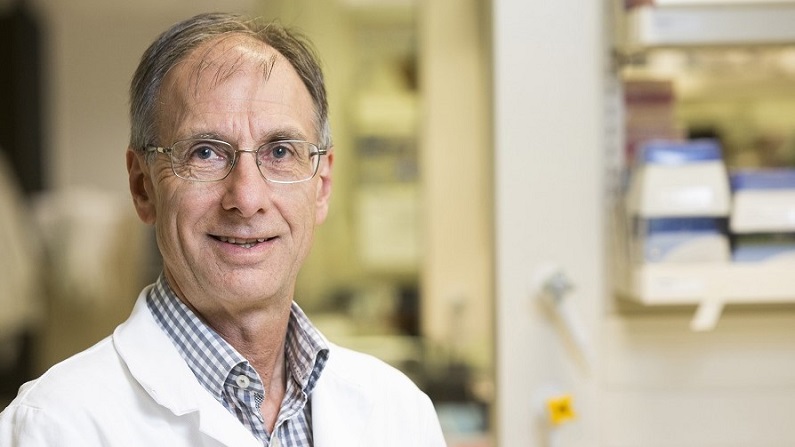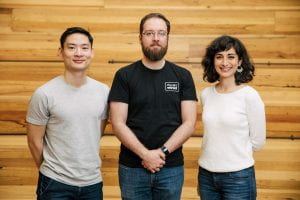 Researchers
Researchers
Dr. Emma Scotter, PhD. Senior Lecturer (and the team), School of Biological Sciences, and Centre for Brain Research, Faculty of Science, University of Auckland
Current Research
Dr. Scotter heads the Motor Neuron Disease Lab at the Centre for Brain Research. Her team is focused on understanding the relationship between the deposition of protein aggregates and the death and dysfunction of various brain cells. In particular they are investigating cells of the blood-brain barrier in MND, which show impaired function that contributes to motor neuron damage. The team works with participants and with tissues, including:
- Volunteers who are unaffected by neurological disease or are living with MND
- Fixed or fresh human brain and spinal tissue
- Brain cells grown from post mortem human brain and spinal cord tissue
- DNA/ RNA/ proteins extracted from blood, cells, and tissues
Scotter Lab uses a range of methodology reflecting their diverse model systems:
- Magnetic resonance imaging
- Genomics: DNA sequencing, in situ hybridisation
- Transcriptomics: Microarray, qRT-PCR
- Proteomics: Immunohistochemistry, western blotting, immunocytochemistry
Relationship to MND
MND is Dr. Scotter’s primary research focus.
Future Research
Establishing a national MND genomics platform- potential collaborators are welcome to contact Dr. Scotter.
Collaborations
Dr. Scotter collaborates widely nationally and internationally on MND studies. Within the Centre for Brain Research she works with Professors Mike Dragunow and Richard Faull and Associate Professor Maurice Curtis. Dr. Scotter is on the Steering Committee for the NZ MND patient registry driven by Dr. Richard Roxburgh. She also co-leads a national MND genetic screening study with Dr. Richard Roxburgh, collaborating with Canterbury Health Laboratories, Professor Naomi Wray, University of Queensland, and Christopher Shaw, King’s College London.
Resources
Scotter Lab works with banked human MND brain samples collected by the NZ Neurological Foundation Human Brain Bank. They also work with human MND brain cells grown by the Hugh Green BioBank and with human MND skin cells which they collect from study participants and grow.
Identified Gaps
Dr Scotter: “Personnel. Funding for postgraduate and postdoctoral researchers specifically in MND research is required to build capacity in MND research in NZ. Connections between NZ researchers with any MND research interest are also essential if we are to characterise MND here at home”.
The Team
Dr. Siobhan Kirk, Technician
Research support and coordination of NZ MND Genetics Study
Dr. Molly Swanson, Postdoctoral fellow
Identifying Spatiotemporal Microglial Changes in Amyotrophic Lateral Sclerosis
Charlotte Dunne, PhD Candidate
TDP-43, the ‘smoking gun’ in motor neuron disease: Disposal, uptake and neuroinflammation in pericytes
Serey Naidoo, PhD Candidate
The neglected role of the blood-brain-barrier and the meninges in Motor Neuron Disease
Maize Cao, PhD Candidate
The Role of Motor Neuron Disease Protein TDP-43 in Human Brain Pericytes and Microglia
Kyrah Thumbadoo, PhD Candidate
The role of X-inactivation in the phenotypic expression of the X-linked Motor Neuron Disease gene UBQLN2
Miran Mrkela, PhD Candidate
The Genetics of Motor Neuron Disease in New Zealand
Laura Nementzik, Honours Student
Neuropathology of UBQLN2-linked Motor Neuron Disease gene
Serene Kim, Honours Student
Dympna Mulroy, Manager of the New Zealand Motor Neuron Disease Research Network
Recent Publications
Blood-spinal cord barrier leakage is independent of motor neuron pathology in ALS
Waters, S., Swanson, M. E., Dieriks, B. V., Zhang, Y. B., Grimsey, N. L., Murray, H. C., … & Scotter, E. (2021). Blood-spinal cord barrier leakage is independent of motor neuron pathology in ALS. Acta neuropathologica communications, 9(1), 1-17. doi.org/10.1186/s40478-021-01244-0
Contact Details
3A Symonds Street,
Auckland
Private Bag 92019
Auckland New Zealand
p: +64 9 3737599 (ext. 81350) +64 9 923 1350 (Direct dial)


